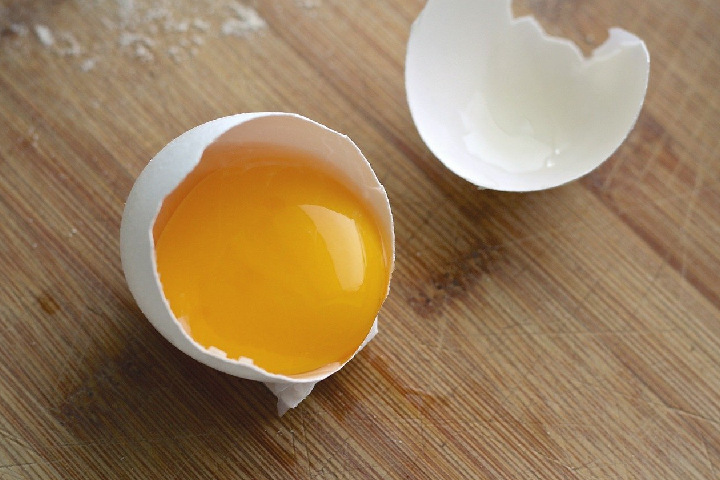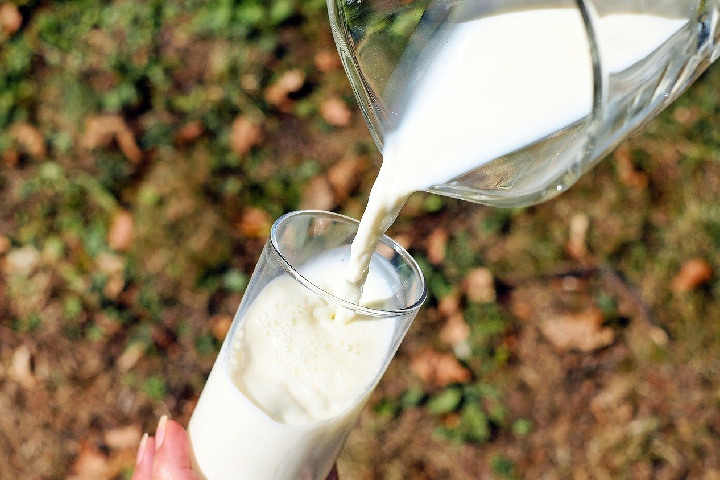Fix Calcium: You already know that bones need calcium, but it is not enough to provide it through the diet. This fix calcium must “stick” well to the bone for it to be beneficial. Do you know that certain foods do this function?
1. Tuna, Sardines, and Salmon
To improve the absorption and fixation of calcium in the bones, a sufficient supply of vitamin D is needed, which we obtain basically when in contact with the sun. But also through the consumption of bluefish, such as tuna, sardines, salmon, or mackerel.
It is ideal to consume the bones of small fish since it is where calcium is most concentrated.
2. A Glass of Milk
Milk is a nutritious food. It provides vitamins, proteins, and minerals. Among the first, we find vitamin D, which contributes to calcium fixation.
Semi-skimmed or skimmed milk indeed has the same amount of calcium as whole milk, but the same does not occur with vitamin D, which is fat-soluble and is lost when fat is removed. But currently, this type of lighter milk is enriched with Vitamin D for this reason.
If you drink milk regularly, it is better to go for the lighter versions.
3. The Egg Yolk
Also, in eggs, we find a way to fix calcium in the bones, since their yolks contain vitamin D.

- Clinical research indicates that the eggshell is where the highest calcium levels are and that it may be an option to treat osteoporosis.
- The powder supplements eggshells are being marketed under this premise.
- You should not consume any supplement if it is not under the supervision of a specialist.
4. Phosphorus Consumption
In addition to consuming foods rich in calcium, it is essential not to lose sight of phosphorus. If we consume a lot of calcium or phosphorus, we can interfere with their metabolisms and cause poor absorption, which will affect the health of your bones.
You can find phosphorus in protein-rich foods like meat, chicken, turkey, fish, nuts, or mushrooms.
5. The Importance of Vitamin K
Spinach and green leafy vegetables, in general, are rich in calcium, but also contain vitamin K, which is essential for proper absorption of calcium.
A great option to take care of your bones is to eat spinach. Now, if you cook them at high temperatures, you will spoil this mineral. Better eat them raw in a salad.
6. Rich Carrots
The pro-vitamin A that carrots contain will help you synthesize and assimilate calcium in your body. They are also a source of minerals such as potassium and provide discrete amounts of phosphorus, magnesium, iodine, and calcium.

Carrot is easy to include in the diet. You can use it as an ingredient for a cream or garnish or eat it raw in a salad.
7. Strawberries and Kiwis
The consumption of vitamin C also facilitates the assimilation of fixed calcium in your body. Among the many sources of this micronutrient, strawberries and kiwis stand out. But even peppers and tomatoes.
Kiwis can be kept for a long time, provided they are protected against dehydration, such as polyethylene bags. Thus, they can be kept for up to 2 weeks outside the fridge.
8. Expands Pantry of Herbs and Spices
Spices such as curries, paprika, and aromatic herbs (both fresh and dried) are good sources of vitamin K, thus contributing to better absorption of the calcium contained in other foods.
Give a touch to your recipes with these spices. For example, sprinkle a little paprika over the chickpea hummus. Among other things, you will add calcium from legumes to vitamin K from paprika.
9. The Role of Fix Calcium in the Bones
The role of fix calcium is key to our bones and teeth’ health, but it is also essential to fulfill a large number of biological functions in the body.
- It is essential for our heart, for cells, to facilitate nerve impulses and synthesize hormones.
An adult needs approximately 1000 mg of calcium a day. How to get our body to get that amount, assimilate it, and not lose it?
- It is not enough to control the consumption of foods that contain calcium since it is more important to include those that facilitate their absorption. As well as taking into account the combinations of certain foods and avoiding others that hinder or prevent their assimilation.
In the gallery, you have just seen we have not collected foods rich in calcium, but those whose content in other substances such as vitamins D, K, A, or C facilitates the absorption of calcium by the body.
10. Foods That Prevent Calcium Absorption
Of all the calcium we take in through the diet, the body only absorbs between 30% and 40%, the rest is eliminated through feces and urine.
These are some of the substances that cause excessive elimination through urine:
- Excess meat and legumes. A high protein consumption favors the elimination of calcium through the urine. The WHO estimates that an adult needs 0.8-1 g of protein per pound of body weight per day.
- Processed products and carbonated soft drinks. Calcium and phosphorus are complementary for bone maintenance but must be in balance. Excess phosphorus is associated with less assimilation of calcium. To avoid this, do not abuse processed products and soft drinks.
- Too much fiber. This compound also hinders the absorption of calcium. Phytates, found in the bran of whole grains, form insoluble salts with calcium and limit, although they do not prevent its absorption. The same is true for oxalates from spinach or Swiss chard.
- High consumption of salt. Taking too much salt increases calcium loss through the urine, which weakens the bones. To avoid this, reduce the amount of salt you usually eat and get used to dressing dishes with aromatic plants. And don’t forget to control the hidden salt that is in many foods, especially processed ones.

